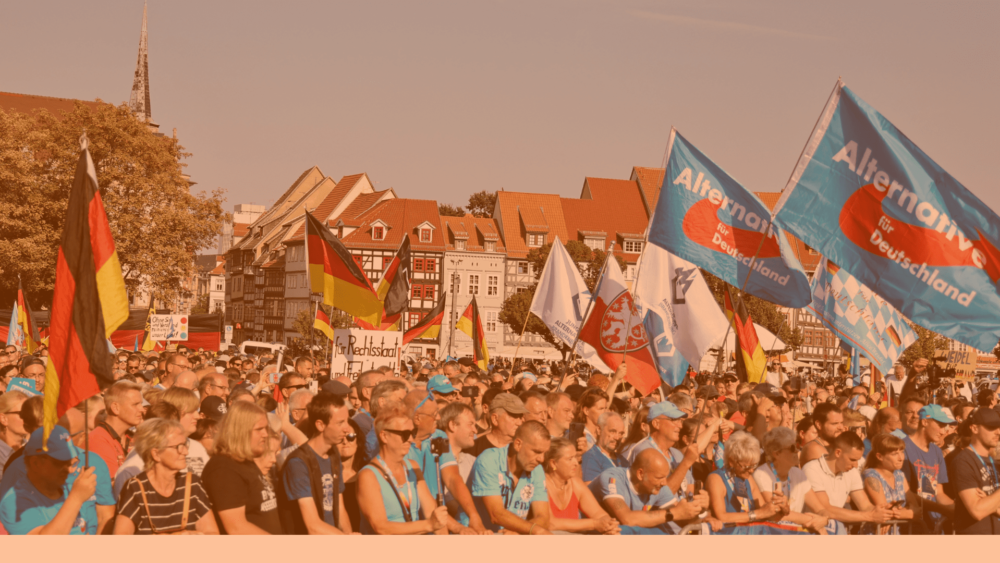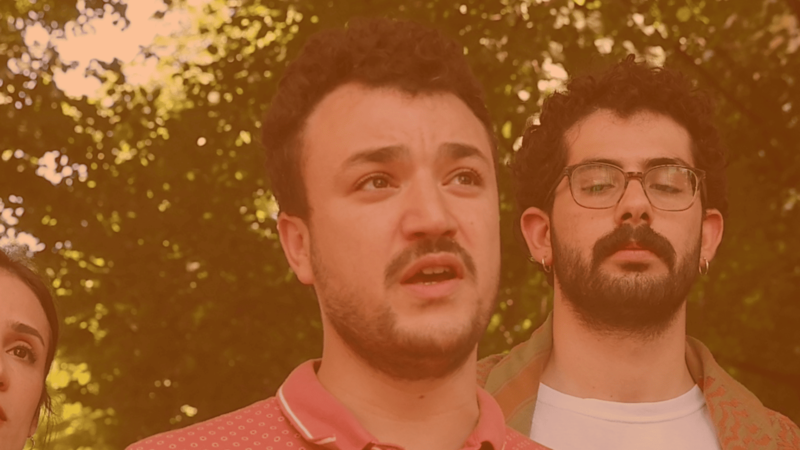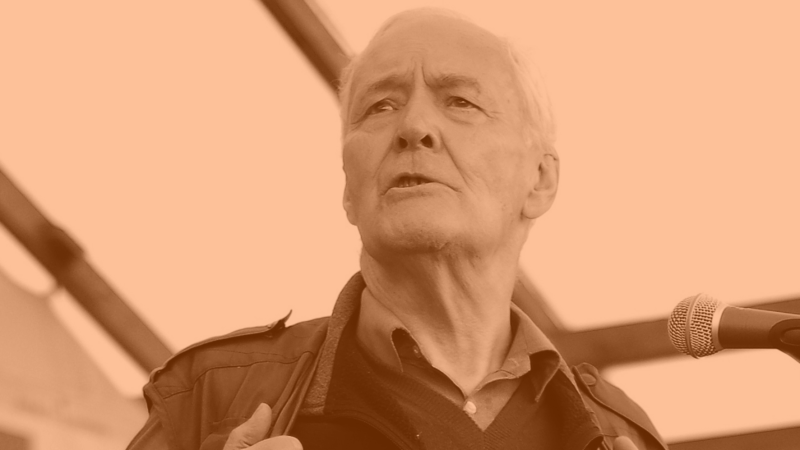The reality in Thuringia and Saxony: a right-wing landslide from the AfD and CDU, while left-wing issues are barely being discussed. Working for progressive policies in the interests of the many has never been more important
On September 1, the federal states of Thuringia and Saxony held their state elections, with both eastern German states experiencing a worrying rise in support for the far-right AfD. The party scored a landslide victory with 32.8 percent of the vote in Thuringia and came second in Saxony with 30.6 percent. In Saxony, the conservative CDU received the most votes with 31.9 percent, while it came second in Thuringia with 23.6 percent. The new party of Sarah Wagenknecht (BSW) came third in both federal states: 15.8 percent in Thuringia and 11.8 percent in Saxony. The centrist SPD of Chancellor Scholz lost in both federal states and only just made it into the state parliaments with 6.1 % (-2.1 %) in Thuringia and 7.3 percent (-0.4 %) in Saxony.
Who didn’t make it?
In Thuringia, the Greens and the liberals failed to reach the 5 percent threshold and received just 3.2 percent (-2.0 % since 2019) and 1.1 percent (-3.9 %) of the vote respectively. In Saxony, the Left Party missed out on entering the state parliament with just 4.5 percent (-5.9% compared to 2019) and is now only represented in the state parliament thanks to two direct mandates, while the liberals only received 0.9 percent (-3.6%) of the vote. Although the Left Party in Thuringia managed to enter the state parliament with 13.1 percent of the vote, it lost more than half of its voters compared to 2019. In both federal states, the Left Party, which once represented a strong counterforce to the AfD, suffered a heavy defeat.
Future politics in both states
In both states, any government formation is accompanied by major political obstacles and compromises. Without the participation of the AfD, coalitions between the CDU and BSW or with the SPD or the Left Party are mathematically possible. In Saxony, even a CDU-BSW coalition with a narrow majority (51.7%) would be possible. The CDU now plays a key role in the coalition negotiations in both federal states, which could have dystopian consequences for migrants, refugees, the environment and the social fabric of the eastern German states in view of its own right-wing foreign policy.
With the large share of the vote in favour of the AfD and CDU, however, a turnaround in the disastrous financial and economic policy is not in sight. An end to the debt brakes would be an urgently needed basis in Saxony, for example, but was not even an issue in the election campaign. The fact that large parts of this financial and economic policy are being implemented at federal level explains the heavy defeats suffered by the SPD, Greens and liberals in this election. Here too, however, the chances of a turnaround in federal politics are nil.
Hopelessness for the left?
Never before in German history since the Second World War has a far-right party won such a significant share of the vote. While some politicians and the media try to limit this problem to East Germany, the reality is far more complex. The causes of voters’ frustration with the established parties lie in the disastrous economic and financial policies, the growing inequalities between rich and poor, rising inflation and the cost of living, as well as the broken promises of those parties that once campaigned against arms shipments to conflict zones but are now fuelling this very spiral.
We view the defeat of the left with concern and see no hope in the policies of the BSW, which is pursuing right-wing approaches in both its migration and economic policies. Rather than becoming hopeless in the face of these challenges, MERA25 will continue to advocate for a new progressive left that is internationalist and in favour of peaceful international relations, humane migration policies and a green transition paid for by those responsible.
Working for such policies in the interests of the many and a genuine alternative to the fascist right and extreme centre has never been more important. We are planning to run in the Hamburg parliamentary elections in January 2025 and, in view of these devastating prospects, are also looking into the possibility of participating in the 2025 federal elections. Join here now and get involved!
Do you want to be informed of DiEM25's actions? Sign up here















